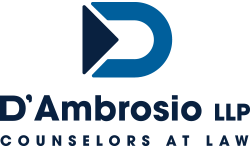You are a proud owner of a closely held corporation, along with others who may be members of your family, investors, or other business associates. Maybe the company has a lawyer. If so, that lawyer has to act in your best interests too, right? The answer may not be so clear.
That is because the answer is “largely fact-specific.” The legal term of art at issue is “fiduciary duty,” which is commonly defined as “a duty of utmost good faith and loyalty.” Sometimes, the law is clear about when this duty exists. For example, the duties of corporate directors are defined by statute and the attorney-client relationship is considered fiduciary as a matter of law. However, outside of certain defined situations, determining whether someone owes you this kind of duty depends on the unique circumstances of your situation. For a business, this means that things like your own interactions with the attorney and the specific provisions of your company’s operating documents could play a large role.
On one hand, the general rule is that a lawyer employed by an organization represents the organization and that the duty owed is to act according to the interest of that organization “and not in the interests of a nonclient stockholder, director, officer, employee, or other representatives of the corporation.” On the other hand, the highest court of Massachusetts has suggested, but not confirmed, that an attorney of a closely held corporation owes each individual shareholder a fiduciary duty, comparing it to the situation where an attorney for a partnership owes a fiduciary duty to each partner.
Until the law settles on this point, individuals in closely held corporations are left to figure out for themselves what duties their business’s lawyer owes them, if any. Due to the fact that each situation is unique, it can be particularly helpful to seek legal counsel on this issue as part of your own best practices. It is important that you protect your interests because – depending on the situation – the company’s lawyer might not have to.
Attorney Joshua Loveall
[1] Baker v. Wilmer Cutler Pickering Hale & Dorr LLP, 91 Mass. App. Ct. 835, 846 (2017).
[1] Automile Holdings, LLC v. McGovern, 483 Mass. 797, 811 (2020).
[1] M.G.L. c. 156D, § 8.30 (the Massachusetts Business Corporation Act).
[1] Markell v. Sidney B. Pfeifer Foundation, Inc., 9 Mass. App. Ct. 412, 442 (1980).
[1] Baker, 91 Mass. App. Ct. at 845.
[1] Baker, 91 Mass. App. Ct. at 847.
[1] Schaeffer v. Cohen, Rosenthal, Price, Mirkin, Jennings & Berg, P.C., 405 Mass. 506, 513 (1989).
HOW CAN WE HELP?
Your team of lawyers at D’Ambrosio are here to work with and for you, every step of the way.



